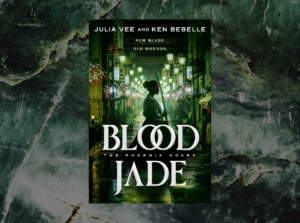Tinkers by Paul Harding
An old man lies dying. Propped up in his living room and surrounded by his children and grandchildren, George Washington Crosby drifts in and out of consciousness, back to the wonder and pain of his impoverished childhood in Maine. As the clock repairer’s time winds down, his memories intertwine with those of his father, an epileptic, itinerant peddler and his grandfather, a Methodist preacher beset by madness. At once heartbreaking and life affirming, Tinkers is an elegiac meditation on love, loss, illness, faith, and the fierce beauty of nature.
A few months ago, I had the pleasure of hearing Paul Harding read from his debut novel, Tinkers at UCSD. Though I didn’t buy my own copy that day, the book stayed with me. At the beginning of summer, I found a copy of it in a used bookstore in one of the San Diego beach communities.
On whole other topic today, I stumbled across this article about Peter Stothard, the head judge for this year’s Mann-Booker Prize (previous winners include The Sense of an Ending by Julian Barnes). In the article, Stothard describes how book bloggers could harm literature by making literary criticism obsolete. While I’m not delving into that topic today, one of the sentences from the articles really stood out to me as I went into the living room and finished reading Tinkers. In a comment on last year’s judge’s priority to pick a readable story, Stothard remarks “readability can be a very interesting thing, great art for the most part resists it to a degree”.
When Paul Harding came to UCSD, one of things that came up was how the book didn’t have great ratings on Amazon and Goodreads, despite being a Pulitzer prize winner (2010). One of the things that comes up the most is how Tinkers isn’t particularly readable. On yet another tangent, I was clicking back through my e-mail today while wasting time waiting (after finishing my book) and came across this article by Joe Bunting at The Write Practice entitle “How to (Nearly) Win a Pulitzer Prize in 5 Steps“. Bunting discusses how the Pulitzer was not awarded this year to a work of fiction. (If you ask me, the committee saw Fifty Shades of Grey dominating the best-seller charts and went, Fuck It). One of the last pieces of advice Bunting gives in the article is to “Write Beautifully”. He gives advice to make sure every single line is beautiful. And this is exactly what Harding does with Tinkers.

UCSD has a very experimentally-minded literature department. Perhaps this has opened my mind up to great works that tell (or don’t tell) stories in conventional ways. Perhaps not. What I do know is that Tinkers is a fantastic read. It’s less a story than it is a memoir and even that is fuzzy. The concepts of time and disorientation muddy the waters too much to say this is really even a fictional memoir. It’s just beautiful.
Tinkers clocks in at just under two hundred pages. Maybe if it was longer, I wouldn’t be singing the same praises. I don’t know. At any rate, I feel this is a work that will stand the test of time. After all, who hasn’t suffered through pages and pages of clunky, abstract prose in Doestoevsky or Tolstoy? (Don’t get me wrong, I love my Russians!) I think Tinkers hits a good balance. It’s abstract, but it comes in such a small package that it’s likely to hit a home-run with a greater portion of the market. Anyone can read two hundred pages. Really.
The first line of the novel is “George Washington Crosby began to hallucinate eight days before he died”. Harding uses these time markers to progress the story forward. We get a countdown in hours. Because I had a used copy, the person before me had decided to go in and note what those hours amount to in days. I’m not sure I would have paid much attention to this neat, story-telling convention otherwise.
Maybe the best way to explain this novel is to give you a taste of the prose. That’s what got me hooked. Hearing the author read a portion of it aloud.
One hundred and thirty-two hours before he died, George awoke from the racket of the collapsing universe to the darkness of night and a silence, which, once the clamor of his nightmares had faded, he could not understand. (28)
And as the ax bites into the wood, be comforted in the fact that the ache in your heart and the confusion in your soul means that you are still alive, still human, and still open to the beauty of the world, even though you have done nothing to deserve it. (72)
Let those grassy crafts be listed alongside the iron hulls that cleave the sea, for they are all improvisations built from the daydreams of men, and all will perish, whether from ocean siege or October breeze. (78)
What if it is clear and the sky brimming so full of stars that the light overflows the earth and transforms into luminescent white flowers along the bank, which sparkle and disperse without a trace the moment the planet passes the deepest meridian of night and begins turning back toward the sun? (145)
This novel took me a couple of days to finish because I was determined to only read it when I could focus on it. Some novels are for entertaining, for whiling away time. Some are for changing your life and giving you a greater sense of the world. Some are for impressing upon you the beauty of language.
Have you read Tinkers?



